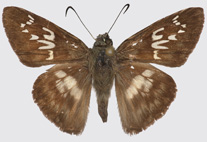Abstract
A new species of Pseudopaludicola is described from human-altered areas originally covered by Semideciduous Forest in northwestern state of São Paulo, southeastern Brazil. Morphologically, the new species differs from four species belonging to the P. pusilla group by the absence of either T-shaped terminal phalanges or toe tips expanded, and from all other congeners except P. canga and P. facureae by possessing an areolate vocal sac, with dark reticulation. The higher duration (300–700 ms) of each single, pulsed note (9–36 nonconcatenated pulses) that compose the call in the new species distinguishes it from all other 14 species of Pseudopaludicola with calls already described (10–290 ms). Absence of harmonics also differ the advertisement call of the new species from the call of its sister species P. facureae, even though these two species presented unexpected low genetic distances. Although we could not identify any single morphological character distinguishing the new species from P. facureae, a PCA and DFA performed using 12 morphometric variables evidenced significant size differences between these two species.

